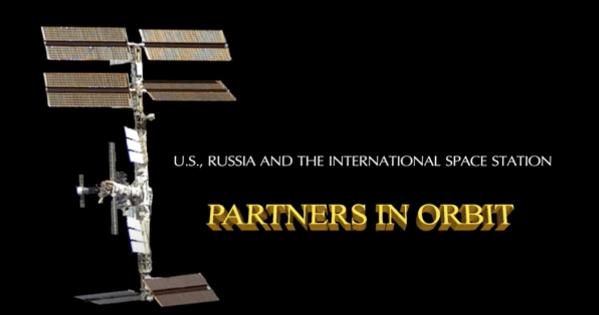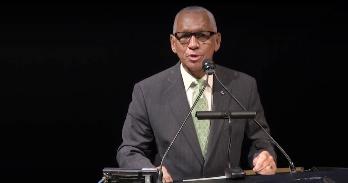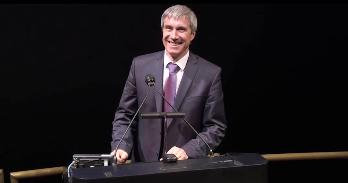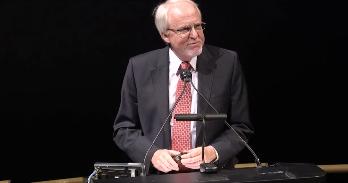The Global Benefits of International Cooperation

The Carmel Institute's Fifth annual symposium in 2016, "Partners in Orbit: The US, Russia, and the International Space Station," brought together astronauts, cosmonauts, and people from around the Washington, DC, area and the world, including more than 600 university students, to learn about the four decades of successful American and Russian cooperation in space.
The full 71-minute symposium video features welcoming remarks from Roger Launius, Smithsonian Air and Space Museum, and the NASA documentary video “Space Station Stories: Stronger Together.” The symposium itself began with introductory comments from His Excellency Sergei Kislyak, Ambassador of the Russian Federation to the United States, and a short video from the Russian cosmonauts then resident on the International Space Station: Yuri Melenchenko, Alexey Ovchinin, and Oleg Skripochka.
 Charles F. Bolden, Jr. Administrator of the National Aeronautics and Space Administration (above) opened the symposium. The next speaker was Sergei Saveliev, Deputy Director of Roscosmos, the Russian Space Agency. Both officials emphasized how ISS cooperation benefits not only the United States and Russia, but humanity in general. Sergey Krikalev, Deputy Director of Central Engineering Research Institute, who is also a former crewmate of Charles F. Bolden, Jr. and the cosmonaut who once held the record for the longest time in space (below), related his personal experience as both a cosmonaut and one of the first Russian crewmembers in the US Space Shuttle program.
Charles F. Bolden, Jr. Administrator of the National Aeronautics and Space Administration (above) opened the symposium. The next speaker was Sergei Saveliev, Deputy Director of Roscosmos, the Russian Space Agency. Both officials emphasized how ISS cooperation benefits not only the United States and Russia, but humanity in general. Sergey Krikalev, Deputy Director of Central Engineering Research Institute, who is also a former crewmate of Charles F. Bolden, Jr. and the cosmonaut who once held the record for the longest time in space (below), related his personal experience as both a cosmonaut and one of the first Russian crewmembers in the US Space Shuttle program.

The Honorable John Beyrle, Jr., former Ambassador of the United States to the Russian Federation and Carmel Institute Advisory Board member (below), shared astronaut Tom Stafford’s perspective on the first US-Soviet cooperative effort, the Apollo-Soyuz Program, and presented the Russian side of that original partnership in a short video from cosmonaut and General Alexei Leonov recorded especially for the symposium. Ambassador Beyrle also reflected on the broader benefits of international cooperation for both the world today and the planned manned missions to Mars in the next few decades. Susan Carmel, the founder and benefactor of the Carmel Institute for Russian Culture and History, gave concluding remarks on her goals for the Institute and hopes for a more peaceful world in the future.

You can also see a five-minute highlights video of the pre-symposium presentation of a bust of Yuri Gagarin, the first human in space, to the Smithsonian, the individual symposium speakers and the post-symposium reception celebrating the Smithsonian's National Air and Space Musuem as well as a number of NASA astronauts who mingled with the students and answered their questions.
